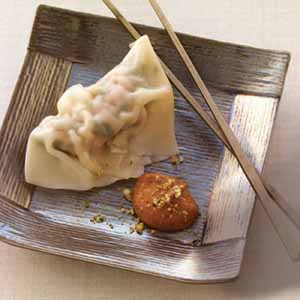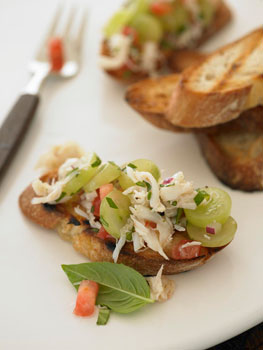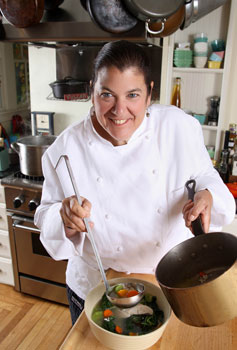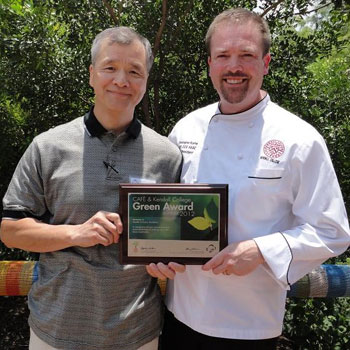McCormick® Flavor Forecast® 2013 Reveals Flavor Trends
 Here are five trends and 10 accompanying flavor combinations (farro, blackberry and clove, anyone?) predicted to catalyze menu innovation this year.
Here are five trends and 10 accompanying flavor combinations (farro, blackberry and clove, anyone?) predicted to catalyze menu innovation this year.
Hunt Valley, Md.-based McCormick & Company recently revealed its McCormick® Flavor Forecast® 2013, now in its 13th year. The report is an annual spotlight on the emerging trends that will drive flavor innovation over the next several years.
Compiling insights from a team of McCormick chefs, sensory scientists, dietitians, trend trackers, marketing experts and food technologists in more than 100 countries over the course of a year, Flavor Forecast highlights distinctive food trends and flavors that have a common thread throughout the world.
For 2013, five trends and 10 accompanying flavor combinations are predicted to be the catalyst for menu innovations that are global and personal:


 This year, mixers will matter and whiskeys will wow. Also, hard ciders go up a notch, and expect the Americanized version of the German Biergarten to blossom.
This year, mixers will matter and whiskeys will wow. Also, hard ciders go up a notch, and expect the Americanized version of the German Biergarten to blossom. According to Mintel research, turkey products report stronger growth than chicken, partly due to increasing interest in heritage breeds.
According to Mintel research, turkey products report stronger growth than chicken, partly due to increasing interest in heritage breeds. Ris Lacoste, owner of RIS in Washington, D.C., got her big break while typing recipes at La Varenne Écôle de Cuisine in France. Today a chef celeb and successful restaurateur, she has a particular message for women in culinary: You can handle the job. Lacoste should know.
Ris Lacoste, owner of RIS in Washington, D.C., got her big break while typing recipes at La Varenne Écôle de Cuisine in France. Today a chef celeb and successful restaurateur, she has a particular message for women in culinary: You can handle the job. Lacoste should know. Like it or not, for a growing number of our students, Facebook is the preferred means of communicating—with everyone. To help them use their Facebook sites effectively, we need to remind them of at least three important guidelines: audience, permanence and development.
Like it or not, for a growing number of our students, Facebook is the preferred means of communicating—with everyone. To help them use their Facebook sites effectively, we need to remind them of at least three important guidelines: audience, permanence and development. Chef Weiner argues there’s only one right answer.
Chef Weiner argues there’s only one right answer. Share your best ideas for innovation in teaching sustainability by April 1, 2013.
Share your best ideas for innovation in teaching sustainability by April 1, 2013. Volume VII in the World Culinary Arts Series at ciaprochef.com, focusing on the cuisines of Jamaica, Puerto Rico, Trinidad and Tobago.
Volume VII in the World Culinary Arts Series at ciaprochef.com, focusing on the cuisines of Jamaica, Puerto Rico, Trinidad and Tobago. Hard work pays off! That’s the underlying philosophy the Monroe Culinary and Confectionery applied in their weeks of preparation for the cold salon at the 2012 International Hotel, Motel & Restaurant Show in November at the Jacob Javits Center in New York. As a result of their efforts, Monroe won the gold medal of the salon and the Prosper Montagne award for cold-food display.
Hard work pays off! That’s the underlying philosophy the Monroe Culinary and Confectionery applied in their weeks of preparation for the cold salon at the 2012 International Hotel, Motel & Restaurant Show in November at the Jacob Javits Center in New York. As a result of their efforts, Monroe won the gold medal of the salon and the Prosper Montagne award for cold-food display.